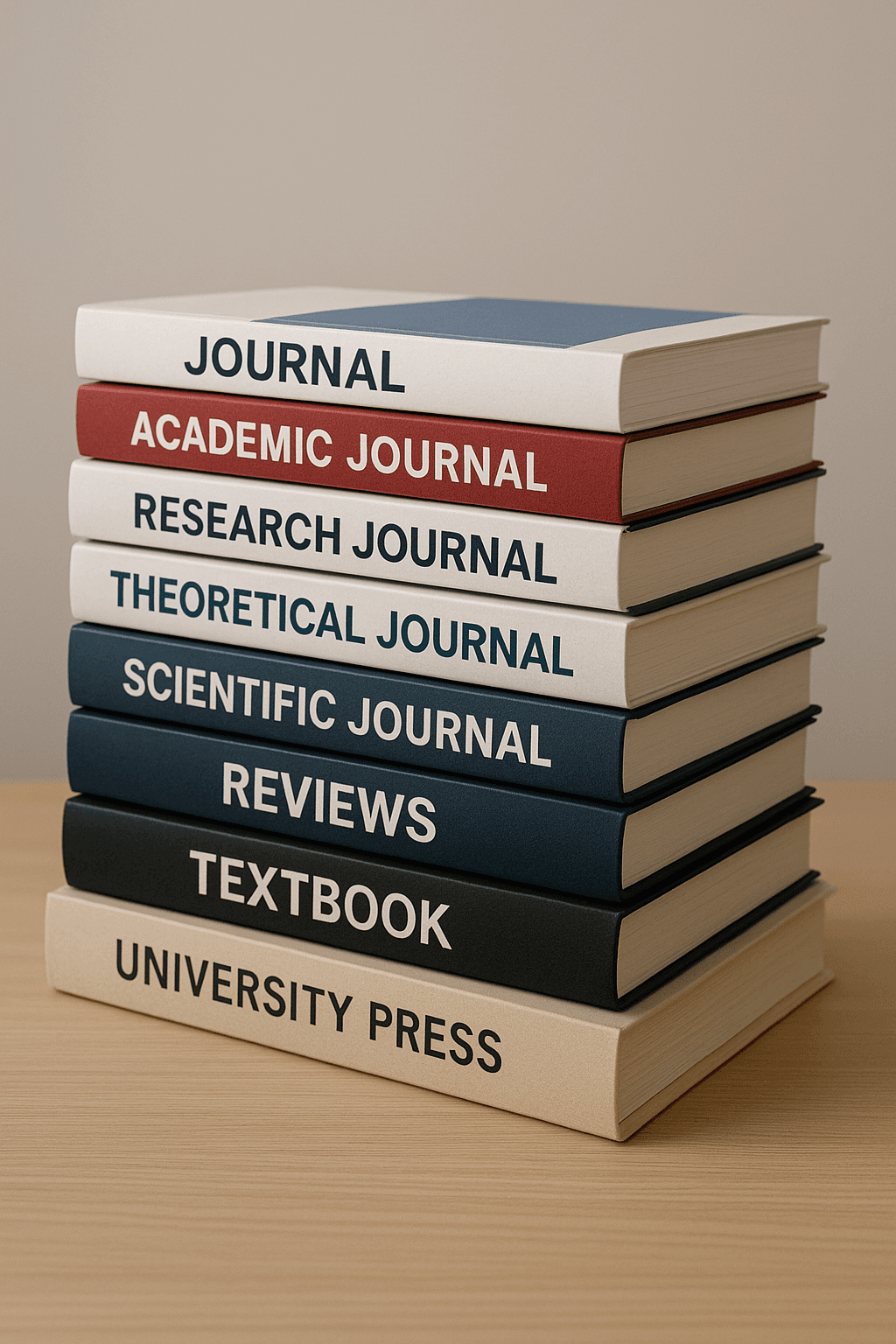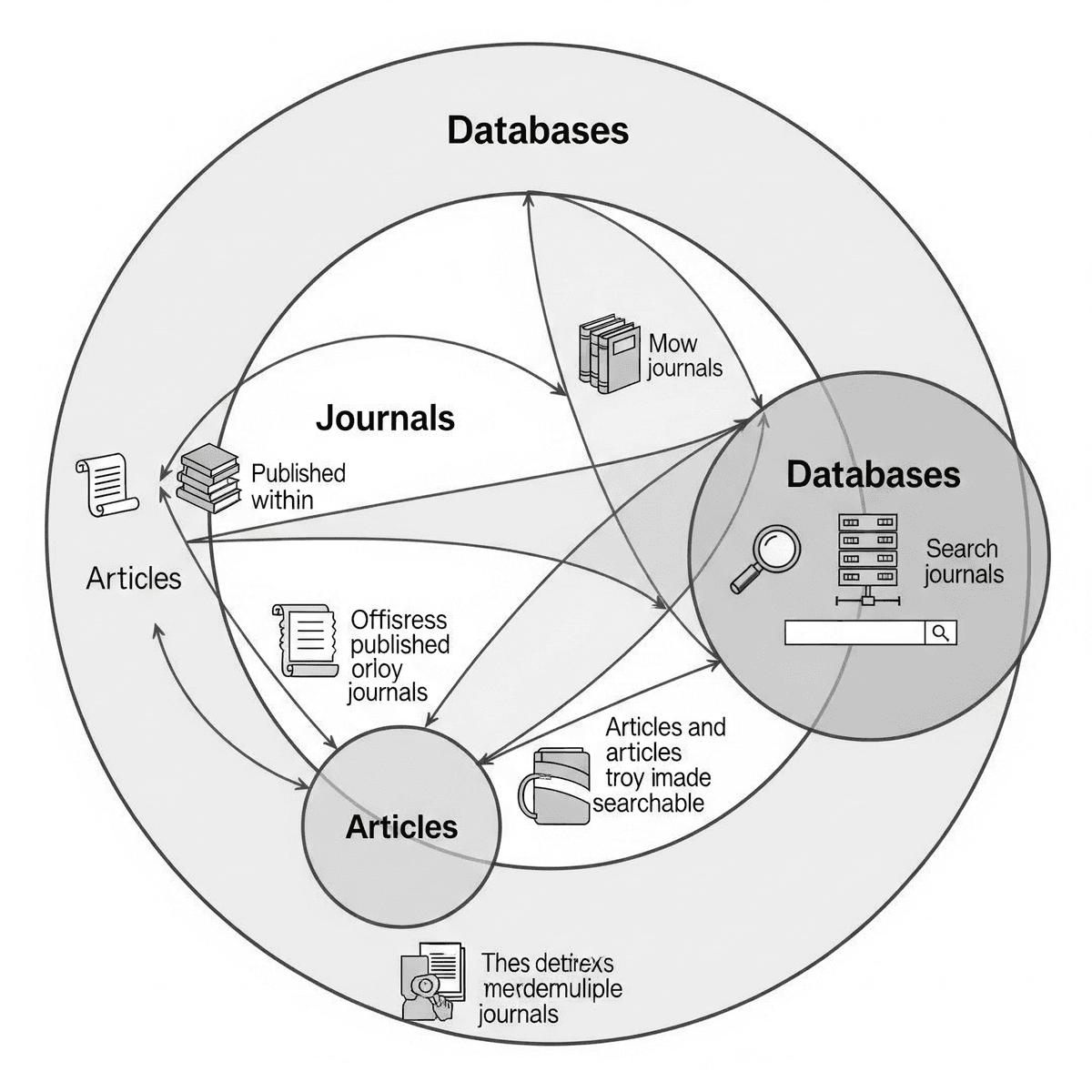In This Article:
Navigating the vast world of academic resources can be daunting. Whether you're a seasoned researcher or just starting your academic journey, understanding the fundamental differences between journals and databases is crucial for efficient and effective information gathering. Let's dive in!
Journals: Focused Insights

A journal is a curated collection of articles that meticulously explore a particular subject or area of study. Think of it as a specialized periodical, where experts in a specific field share their latest research, findings, and perspectives. These publications can be released annually, monthly, quarterly, or at other regular intervals, ensuring a continuous stream of knowledge within a niche.
A key characteristic of journals is that their titles almost always clearly reflect their area of focus, making it easy for researchers to identify relevant content at a glance.
Examples of Journals:
- The American Journal of Nursing: Dedicated to nursing research and practice.
- Behavioral Brain Research: Explores the intersection of behavior and neuroscience.
- Journal of Biotechnology: Focuses on advancements in biotechnology.
- The New England Review: A literary journal showcasing poetry, fiction, and essays.
Databases: A Gateway to Knowledge

In contrast to journals, a database is a powerful online platform designed to provide comprehensive access to an immense array of academic resources. These platforms act as digital libraries, aggregating content from countless journals, and often including books, reports, conference proceedings, and other valuable sources. Databases are regularly updated, ensuring you have access to the most current information available.
One notable distinction is that a database's title may not always explicitly reveal its scope. They often cover multiple disciplines, offering a broader, more expansive search experience.
Examples of Databases:
- ABI/Inform Complete: Specializes in business and management-related journals.
- JSTOR: A multi-disciplinary powerhouse, offering a vast archive of scholarly content.
- PsycINFO: Your go-to for behavioral science and psychology research.
- Web of Science: Covers an extensive range of sciences, social sciences, arts, and humanities.
Why It Matters: Strategic Searching
Understanding the difference between these two resource types is key to developing effective research strategies:
- Searching within a database gives you access to a large pool of sources. This is incredibly helpful when you're just starting your research and need to explore a broad topic or identify various perspectives. However, be prepared to sift through some results that might be less directly relevant to your specific focus.
- Searching within a specific journal will naturally yield fewer results, but those results are far more directly related to your subject. This approach is ideal when you have a well-defined topic and are looking for in-depth, specialized information.
For instance, if you are writing about the acclaimed author Cormac McCarthy, it would make immense sense to begin your research with The Cormac McCarthy Journal to gain specialized insights. Once you have a solid foundation, you can then expand your search to a broader, multi-disciplinary database like JSTOR for additional perspectives, critical analyses, and contextual information.
Tip for Citations: Get It Right!
When meticulously crafting your citations (and good citations are a hallmark of strong academic work!), you usually need to list both the journal title (where the article was originally published) and, if applicable, the database name (where you accessed the article). Always consult your specific citation style guide (e.g., APA, MLA, Chicago) for precise formatting requirements.
The Takeaway
In short, think of a journal as a specific magazine dedicated to one topic, and a database as a massive newsstand that sells thousands of different magazines. Both are essential tools in the researcher's toolkit, and knowing when to use each will save you time and greatly improve the quality of your work. Happy researching!